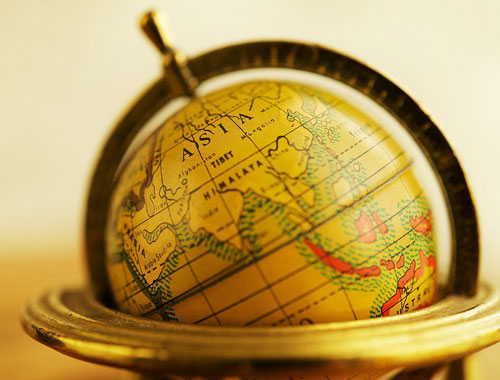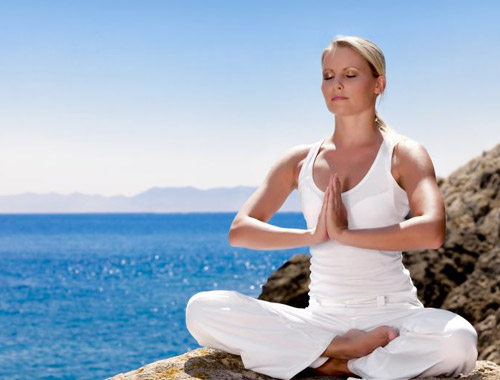

India is a mystical land that presents the traveller with a bamboozling array of unforgettable experiences. Apart from its ancient spiritual framework, India's vastness also challenges the imagination. Being home to one sixth of the world's population, visiting India can be a wee bit unnerving for the first-time visitor. The lifestyle and culture is totally different from most of the countries. It’s hardly surprising that this country has been dubbed the worlds most multidimensional. Love it or loathe it, (with most visitors puzzled between the two), India promises to be a place you’ll never forget. To make the most of your tour to India, we have prepared for you an assortment of valuable tips and guidelines covering various aspects and situations that you may encounter during your trip. You must keep them in mind to ensure a hassle-free and enjoyable holiday to India.
1. ATM's: Most big cities have ATMs which accept Visa and MasterCard as well as American Express. The ATM network is ever expanding and in some states, you can find them even in some smaller towns.
2. Beggars: Do not let the beggars hassle you by providing money as a help and encouraging them.
3. Bribe: Don't offer bribes to get any job done. Bribe-taking and bribe-giving are a common practice in India but they are intended to speed up things or win a favor that you are not entitled to. If you expect favors, let them come free or not at all.
4. Car Hire: In case you wish to hire vehicles or cars while on tours to tourist attractions in India then the best thing to do would be to ask your tour operator to do the needful. Hiring from railway station, airport and local market may not be safe and secure.
5. Cash and Valuable: Do not leave your cash and valuables in your hotel rooms. Keep your cash divided in different pockets.
6. Check-out from the Hotel: Do not checkout from the hotel in a hurry. While checking out it has been noticed in some hotels, the extras are unreasonably charged which the guest hurriedly pays without cross-checking.
7. Food: Beef is not served in many parts of India. Pork is also not easily available. Eat non-vegetarian food only in good restaurants. The meat in cheaper and smaller places can be of dubious quality. Good quality vegetarian food is easily available. Try and avoid spicy food, especially if you’re not used to it. Curd or yoghurt is served with most meals. It is a natural aid to digestion and helps temper the spicy food.
8. Foreign Exchange: In cities you can change most major foreign currencies and brands of traveler's cheques - but you'll widen your options and save yourself hassles if you stick to US dollars or pounds sterling, and either Thomas Cook or American Express travelers cheques.
9. Government Offices and Banks Timings: All banks in India function from Monday to Friday from 1000 hours to 1430 hours, post offices in India work from Monday to Friday from 1000 hours to 1630 hours and government and administrative offices in India operate from 0930 to 1700 hours on weekdays.
10. Guide: English is spoken at almost all tourist centers, but you can also request Government-trained and approved guides who also speak German, French, Spanish, Japanese, Italian or Russian.
11. Insurance: It is advisable to cover yourself with travel insurance for thefts, loss and medi-claim.
12. Language: Indian English has its own delights especially to foreigners of English nativity. Don't show amusement at the different Indian accents and choice of words. This does not take away from the fact that many Indians speak and write better English than many native English speakers.
13. Local Invitation: Don't accept offers of visiting anyone's home unless you are confident of the person.
14. Maps: Carry proper maps of the places proposed to visit in India/Nepal, as signboards are often absent. Try to reach a station during daytime if traveling on your own. In any case avoid persistent touts and taxi-drivers at airport/stations/bus stand to help you find your hotel. Always use tourist assistance desk for proper advice.
15. Passport: Carry your passport and important travel documents at all times Carry attested Photostat copies of travel documents in person and keep the originals safely.
16. Photographs: Keep extra photocopies of the relevant pages of your passport. This will be required for Indian permits. Also, keep extra photographs of yourselves. These will be required for permits, filling out forms, etc.
17. Photography: Photography could be an issue at some places. For places of military importance like railway stations, bridges, airports, defense installations and sensitive border regions, you would require to seek permission from the authorities concerned. A few wild life sanctuaries levy a much higher fee. The Archaeological Survey of India issues special permits for shooting at monuments with tripods and artificial lights. Yet, Indians love posing for a picture. But, in some traditional societies, take care before focusing your lens on women.
18. Public Transport: Taxi and auto-rickshaw fares keep changing, and therefore do not always conform to readings on meters. Insist on seeing the latest rate card (available with the driver) and pay accordingly. Insist on the taxi/auto meter being flagged down in your presence. As much as possible, especially from the airport or railroad station insist on using the pre paid services which are available at most important places.
19. Shopping: Try to shop only in government handicraft shops. There the prices are fixed and the quality is certified. If that is not an option, check the prices at a few shops before making a choice. Bargaining is standard in most places and is enjoyed by all. Get used to the fact that you will probably be charged more than the locals. If possible, take a local along when you go shopping.
20. Sightseeing Places: Museums in India are closed on Mondays and Site Museums, those near archaeological monuments, on Fridays.
21. Single Woman: Women traveling alone in certain deserted places should avoid walking at odd hours.
22. Smoking: Smoking is not allowed at public places. All properties of the Indian Railways including trains and railway stations are strictly non smoking zones with stiff penalties for violations.
23. Social Interaction: If you give the impression of being from a different country, chances are that you might be stared at, especially in the smaller towns. Don't be offended - they mean no harm, it is just curiosity.
24. Student Group Discount: Most of the monuments give very good discount for students from all over the world. They must carry there valid school identity.
25. Ticketing: It is advisable to ask your agent to arrange for train domestic air tickets and road travel while you’re coursing destinations in India.
26. Time: Everything in India takes time - longer than in most places. So always give yourself extra time for whatever you may have to do - even it is just a visit to the Post Office or changing money. Indians joke about the concept of "Indian Stretchable Time" (IST). Certainly, if you're a super-punctual sort, India can be frustrating. Make allowances for this.
27. Toilets: In India, public toilet facilities are few and far between. Take every opportunity you can to use a clean toilet in places such as hotels and restaurants. Make this a habit wherever you go.
28. Travel Period: It is perfectly safe to travel to India at any time during the year.
29. Vaccination: Foreign nationals are required to have a Yellow fever vaccination certificate while traveling to India. It is advisable to get yourself checked so that you can enjoy your India travel in comfort.
30. Water: Make sure you drink bottled water or packaged mineral water while on India tours.
Mind you, religion is a sensitive topic for most Indians. It is nice to keep your rational / logical self under wraps and follow the harmless norms. Just be sober and friendly in any holy place and remember some must-dos that should keep everyone happy.
1. Shoes: Remove your shoes, sandals, sneakers, slippers etc. This is done to keep God's place clean. If you hate walking barefoot and are lucky enough, there might be a cloth overshoe provided to you.
2. Cleanliness: Wash your hands and feet, if you please - it isn't compulsory but just another sign of reverence to the deity.
3. Alcohol: Alcohol is a strict no-no inside the premises, though, in some temples dedicated to Lord Shiva, liquor might be the holy offering itself. It is said that Shiva loved his sips and probably needed them to beat the cold in his homelands, the snowy Himalayas.
4. Permission: At some holy places, you might not be allowed in if you don't practice the faith. Don’t mind this. And, worst, don't force or bribe to enter.
5. Dressing: If you are a woman and in a dress that exposes your legs etc. beware. Though you might not be stopped from entering the sacred place but such dresses are seen 'indecent'. Indian attire like a Sari, salwar-suit is ideal. A loose blouse and a long skirt can do too. Covering your head before entering a Sikh Gurudwaras or a mosque will be appreciated.
6. Mosque: When you enter a mosque, step your right foot first into the courtyard. It is the ‘right’ thing to do.
7. Leather: Since most Hindu and Jains are veggies, it isn’t surprising that leather products like shoes, belts, handbags, camera cases etc. are prohibited.
8. Body Language: Do not point your feet and back towards the Holy Book / the idol / altar. In a Hindu or Sikh temple, sit cross-legged or tuck your feet away.
9. Photography: Some temples prohibit photography in the main hall and the inner sanctum. Usually, signboards announce this. Be prudent and ask if there are no such indications. Some temples and other monuments levy a fee for photography.
10. Buddhist Monastery: In a Buddhist monastery, remember to follow a clockwise direction while any sort of movement – from spinning prayer wheels to walking around the stupa or even the exteriors. Inside, do not plonk yourself on the cushions and chairs. These are reserved for the lamas or the monks. Sit on the steps outside or on the floor. If you get to meet a rimpoche (head lama) or any respected monk, it's polite not to turn one's back on him while leaving. It is decent to remove the hat and lower an umbrella within the monastery. Basically, be your courteous best.


Design your tour with our expertise Plan My Trip